By: Andrea Cipriano, MAFP
Mysterious deaths and autopsies are often at the heart of complex criminal cases. But, the person behind the death investigation can make or break the case.
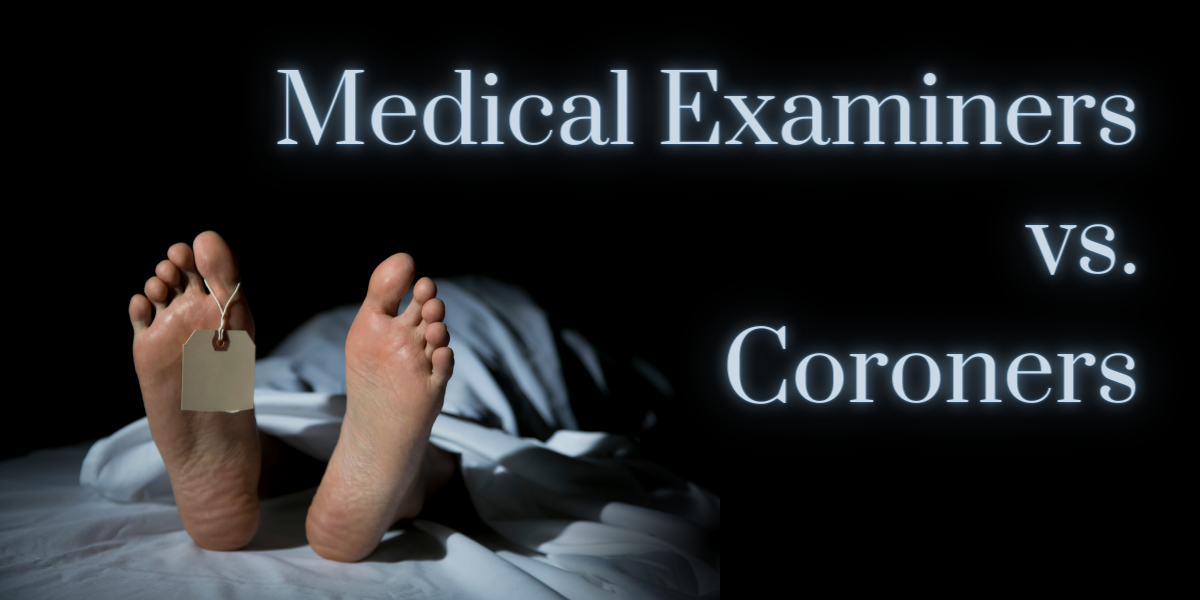
The medical specialists tasked with determining the cause and manner of death cases are essential investigators at the intersection of medicine and law.
However, the titles “coroner” and “medical examiner” are often used interchangeably in the media, leading to confusion about these important roles. Let’s be clear: they’re different.
While both investigate deaths, there are crucial distinctions between the qualifications, duties, and operations of coroners compared to medical examiners.
History of Death Investigation Roles
The coroner system originated over a thousand years ago in 11th century England, intended as a check on abuses by sheriffs. The word “coroner” referred to an officer of the Crown, derived from the Latin word corona, meaning “crown.”
The office of the coroner was established to make sure sheriffs or bailiffs weren’t abusing their power, to maintain death records, and to collect the death tax money owed to the king. Interestingly enough, these early coroners were appointed by the king — similar to how they can be appointed by judges today.
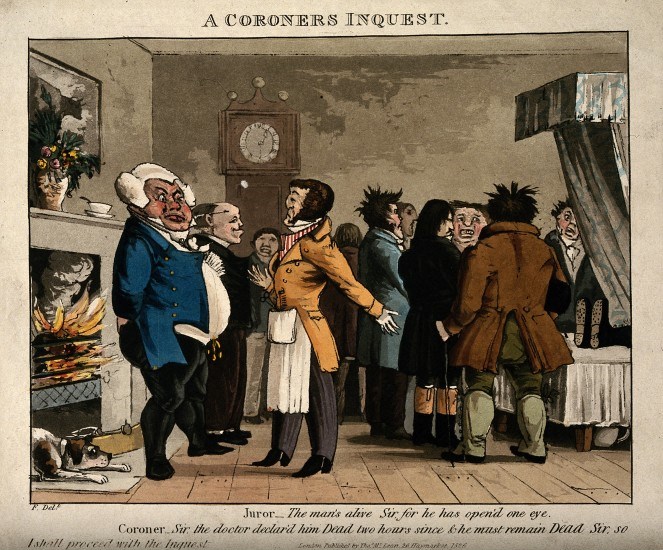
Later, the coroner system continued in the New World once English colonists brought their views along with them.
It wouldn’t be until years later, as forensic science advanced, that America would adopt the medical examiner model in the late 1800s. There was a renewed heavy emphasis on more expert death investigations that weren’t influenced by political office or judge appointment.
The first ever medical examiner office was established in Boston’s Suffolk County in 1877, and the first modern medical examiner office was established in New York City in 1918 under Charles Norris (1918-1935) as the first Chief.
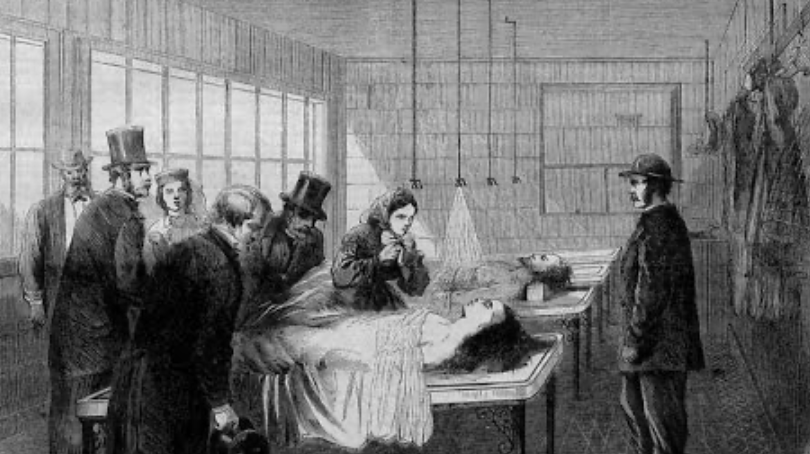
The qualifications, practices, and oversight of medical examiners better conform to modern standards in medicine and law.
While coroners still persist as a tradition in many counties, cities, and states have embraced the more rigorous and independent medical examiner approach to death investigations.
Differing Qualifications
Coroners are often elected or appointed officials with minimal requirements — generally only needing to meet age, residency, and background check standards. To that end, qualifications for coroners are set by individual states and counties in the U.S. and vary widely.
Becoming a coroner requires no formal medical or forensic training, however, some people will pursue voluntary certification programs. According to the Centers for Disease Control and Prevention, only 16 states have laws with specific training requirements for coroners.
“A coroner doesn’t have to ever have taken a science class in their life,” Nancy Belcher, chief executive officer of the Washington State King County Medical Society, told CBS News last year.
The news organization was covering a yearly gathering of physicians and discovered that the expertise needed to become a coroner in Washington varied widely across the state. So much so, that a coroner with the same job title in one county over could have the difference between a medical background or just a high school diploma.
“These are the people that go in, look at a homicide scene or death, and say whether there needs to be an autopsy,” Belcher added. “They’re the ultimate decision-maker.”
In contrast, medical examiners must be physicians licensed after completing medical school and a 3-5 year residency in pathology or forensic pathology. They obtain rigorous academic and practical training in anatomy, autopsy procedures, and investigating death from natural and criminal causes.
Becoming a medical examiner involves nearly a decade of advanced medical education, licensing, and specialized training in pathology, toxicology, evidentiary procedures, and more.
While it isn’t to say that coroners can’t get that training, it’s not required before they’re hired.
Similar Job Duties
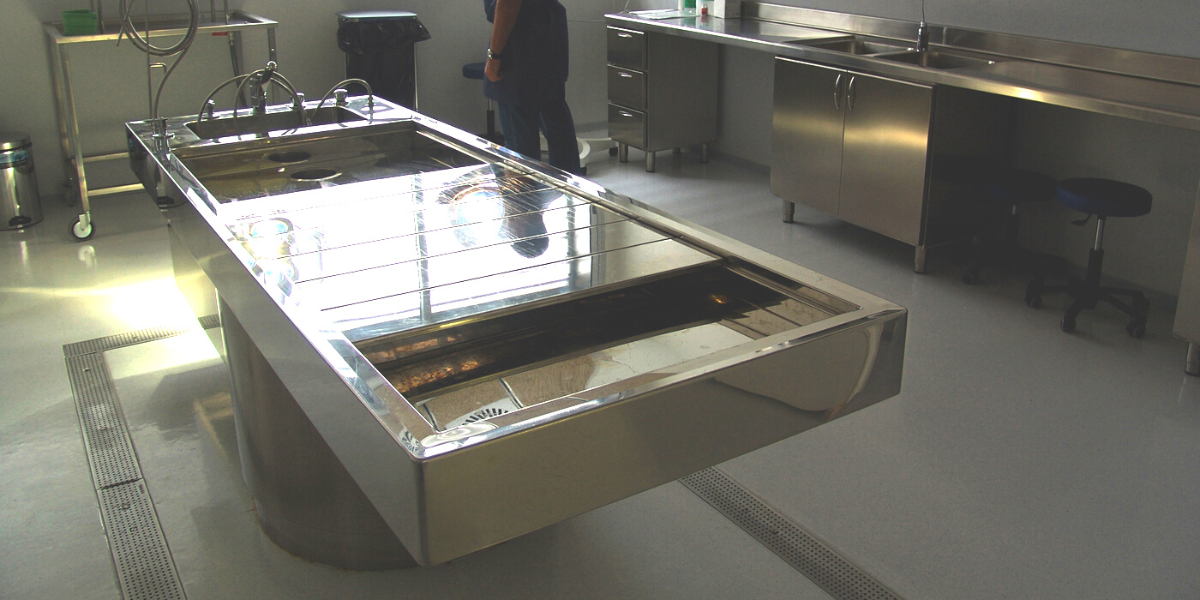
Both coroners and medical examiners determine the cause (mechanism of death) and manner of death (natural, homicide, suicide, accident, or undetermined).
However, coroners typically focus only on this ruling, leaving the forensic investigation to the rest. To that end, there are some areas in the U.S. where a coroner is the only person remotely qualified to perform an autopsy, and will have to conduct the examination to establish the cause and manner of death.
Medical examiners personally conduct autopsies and detailed forensic pathology testing to explain how and why a death occurred.
The role of a medical examiner differs from the coroner in that the medical examiner is expected to bring medical expertise to the evaluation of the deceased. Still, both individuals are tasked with providing critical evidence for criminal cases.
Organizational Differences
Despite similar job duties and goals, the way a coroner and a medical examiner get their job is vastly different.
Coroners are elected officials who report to local government bodies. This creates potential for political and institutional influences. In 49 of California’s 58 counties, for instance, the coroner is also a sheriff, which experts say is a severe conflict of interest. Rulings on causes of death are often not cut-and-dried and can be controversial, especially in police-involved deaths.
“There are some really egregious conflicts of interest that can arise with coroners,” Justin Feldman, a visiting professor at Harvard University’s FXB Center for Health and Human Rights, told CBS News.
In contrast, medical examiners are specially appointed physicians who report to medical organizations. Experts argue that this helps maintain independence and scientific objectivity when analyzing cases.
Case Examples
In the last few years, a Tarrant County, Texas, coroner was suspended from doing autopsies after he mistook a bullet wound for a surgical incision on a victim. The coroner’s work was so sloppy that the victim in the case had to be exhumed, prompting an audit of 40 other homicide cases analyzed by the same individual.
Of the 40 homicide cases, experts found 59 mistakes.
Even though medical examiners clearly seem to be the preferred individual to look into death cases, they’re not without their faults as well.
Jocelyn McLean is a mother who was wrongfully prosecuted for the capital murder of her 8-day-old daughter. She was wrongfully incarcerated after the medical examiner falsely claimed that the baby’s death was a homicide caused by “[b]lunt force injuries with features of strangulation.”
Multiple experts later reviewed the autopsy report and described it as the “worst autopsy” ever seen.
Jocelyn’s ordeal captured national attention with the publication of a New York Times feature, “Failed Autopsies, False Arrests: A Risk of Bias in Death Examinations.”
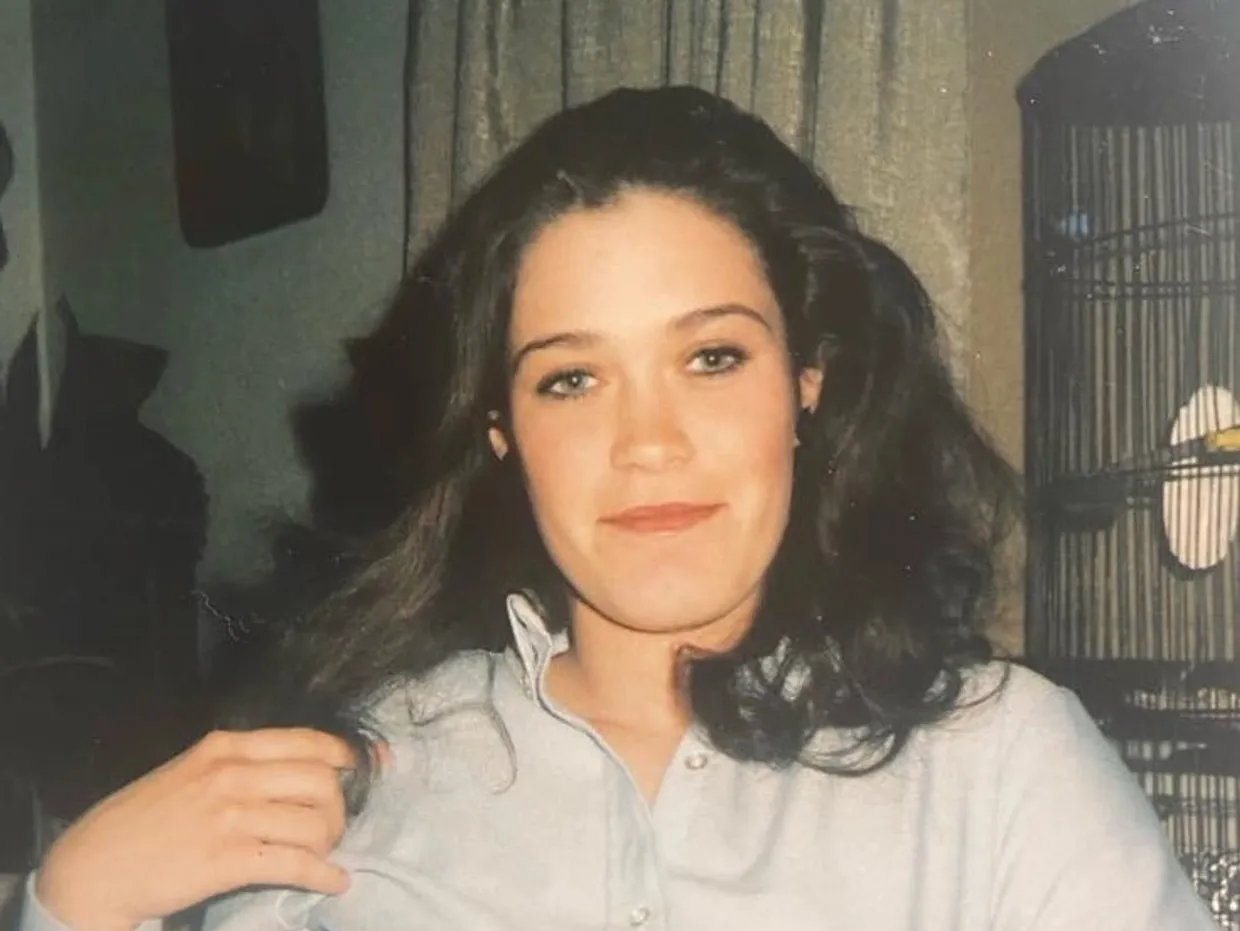
Lori Lee “Sled Dog” Malloy, 30, was found dead by police on the bathroom floor of her East Providence, Rhode Island apartment. She was nude, with recent bruises on her upper thighs and arms, with her dark hair scattered around the apartment. Her manner of death was ruled as “natural” — but her daughter, Lauren, and many people believe this doesn’t add up.
Lori’s original autopsy was conducted by a medical examiner who eventually lost his license to practice in Rhode Island, after losing it in Massachusetts. Known for misdiagnosing cases, the doctor had multiple cases reviewed by the Attorney General’s Office.
For true crime buffs, understanding the distinct roles and qualifications of the coroner and medical examiner systems provides valuable insight into how suspicious deaths are investigated.
Knowing whether a coroner or medical examiner conducted the autopsy and ruled on the cause and manner of death can shed light on the level of medical forensic expertise and objectivity involved in a case.
The differences impact not only the lives lost but also those seeking justice.
Love this post? Meet the Author.
Andrea Cipriano is the Digital Content Specialist at Uncovered, where she writes for the twice-weekly true crime newsletter, The Citizen Detective. Andrea graduated with a Master of Arts in Forensic Psychology from John Jay College of Criminal Justice, where she focused on researching and peeling back the criminal mind. Andrea believes that it’s never too late for justice.
Uncovered has built a community for thoughtful true crime discussion, advocacy, and comprehensive cold case research. We are the hub for novice and experienced researchers alike, helping members further develop their citizen detective skills. Sound like something you’re interested in? Join our community. Together, we can make a difference.
